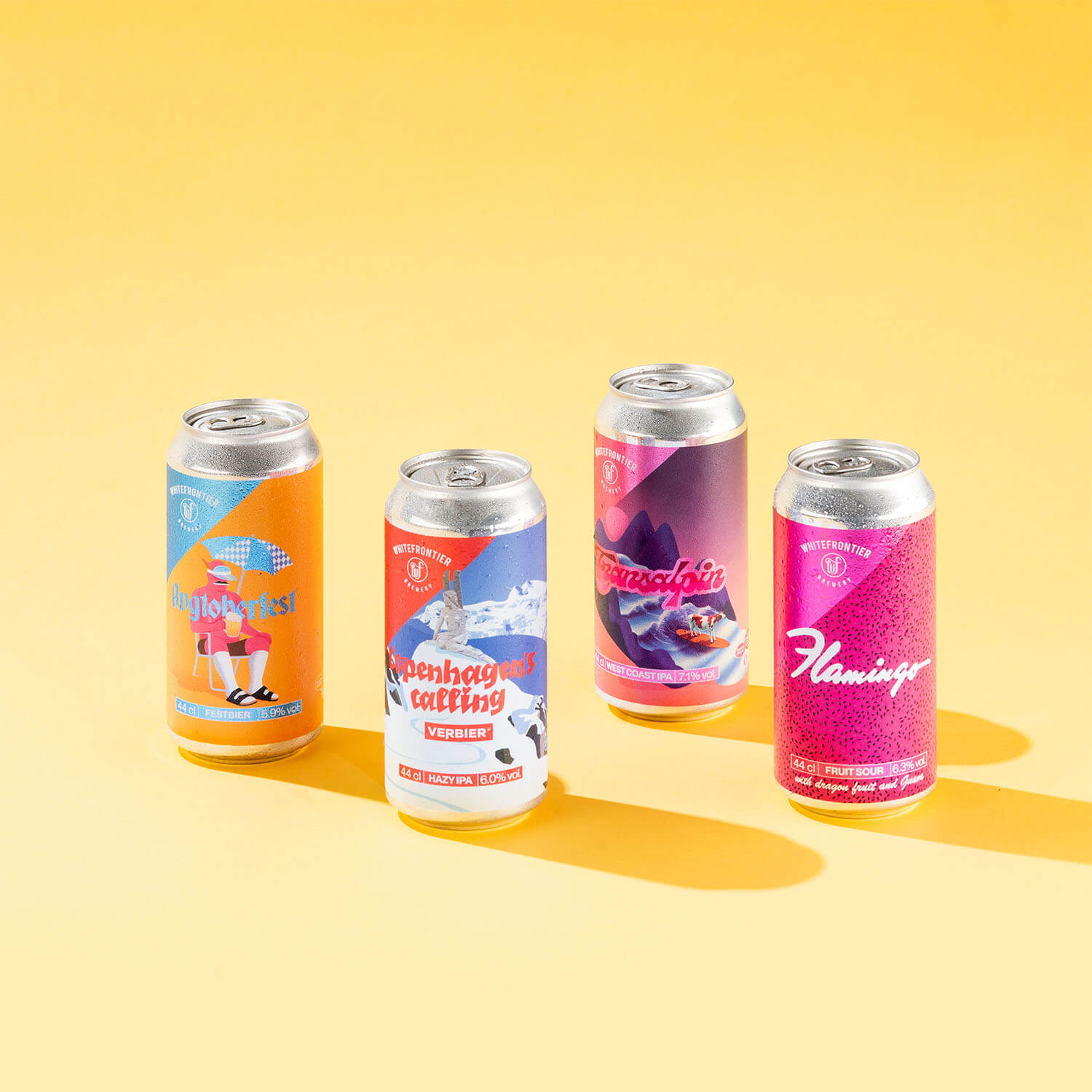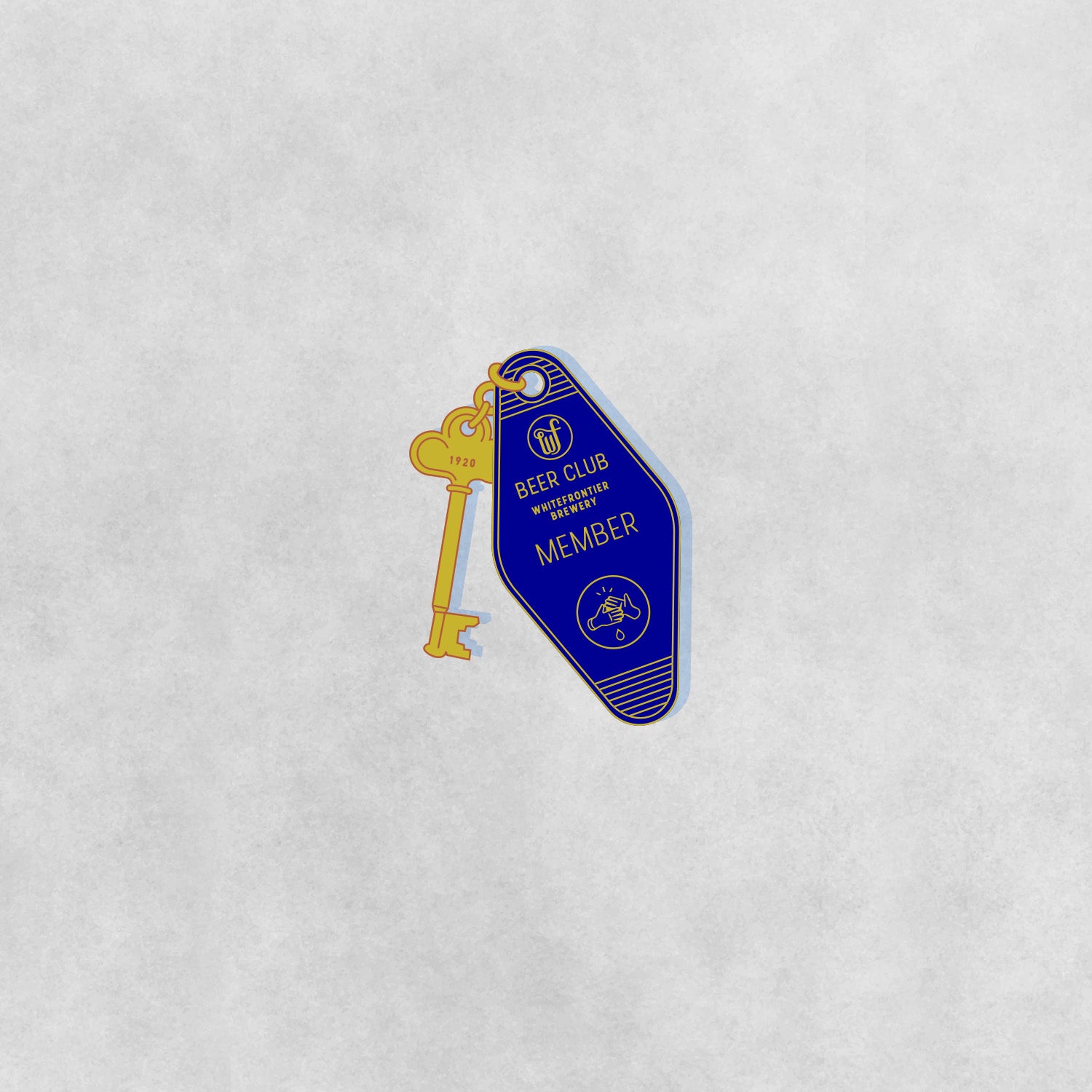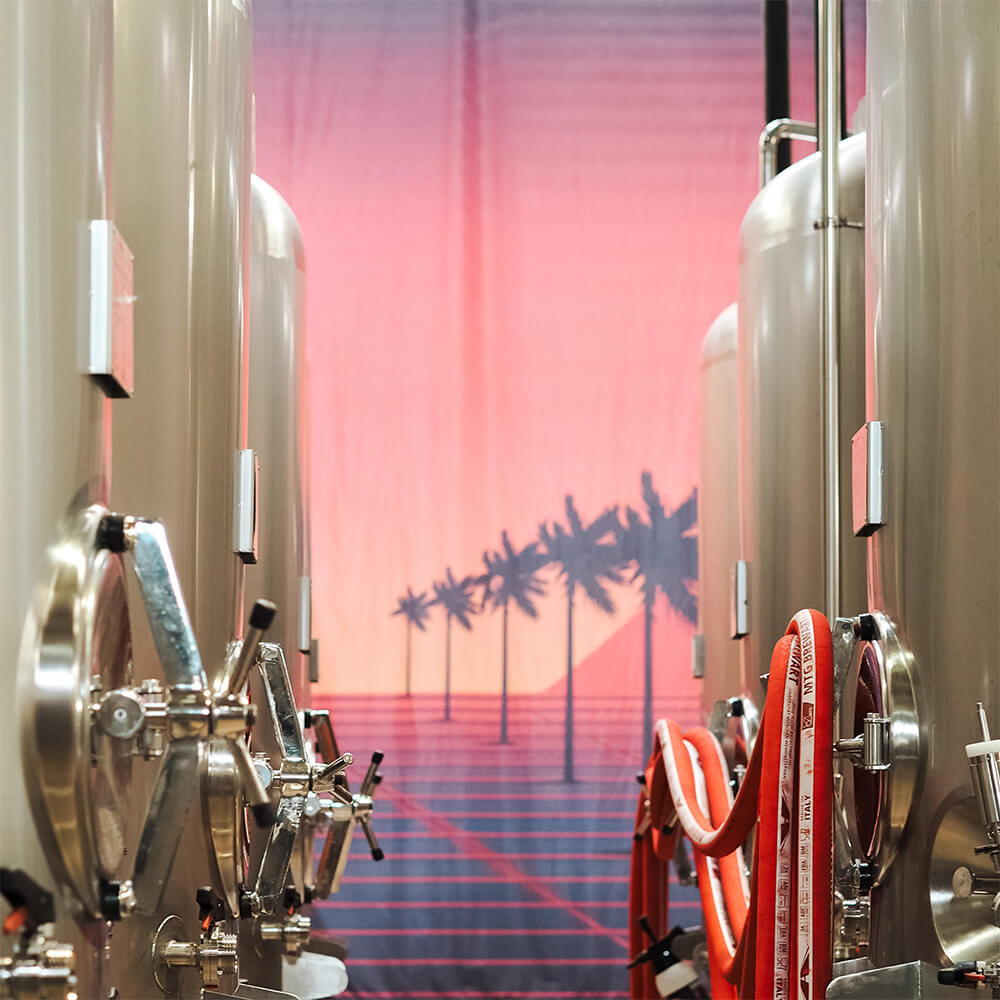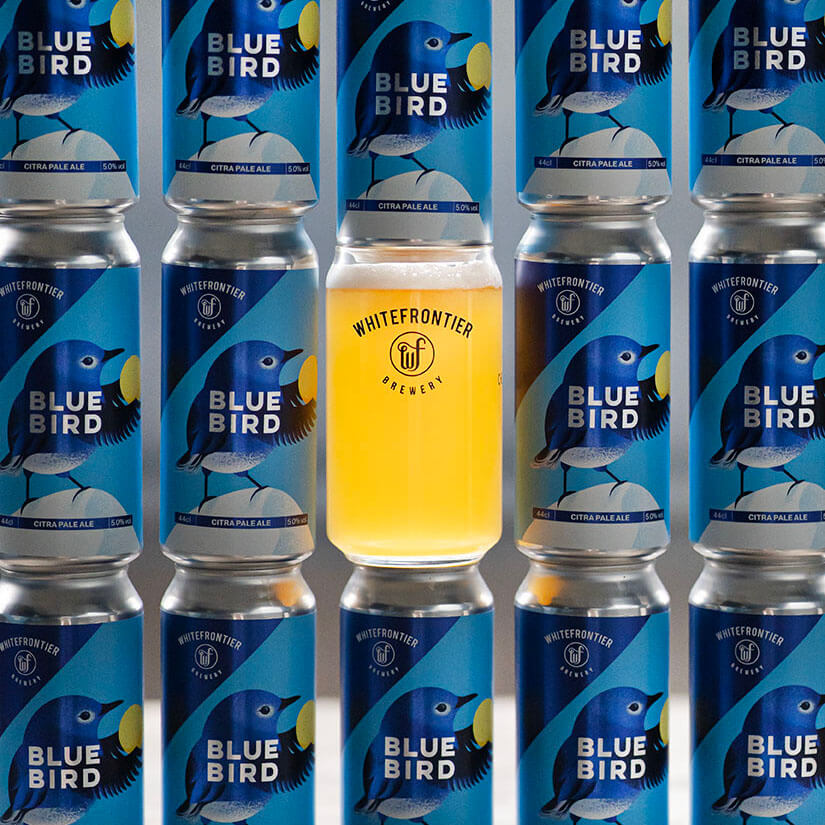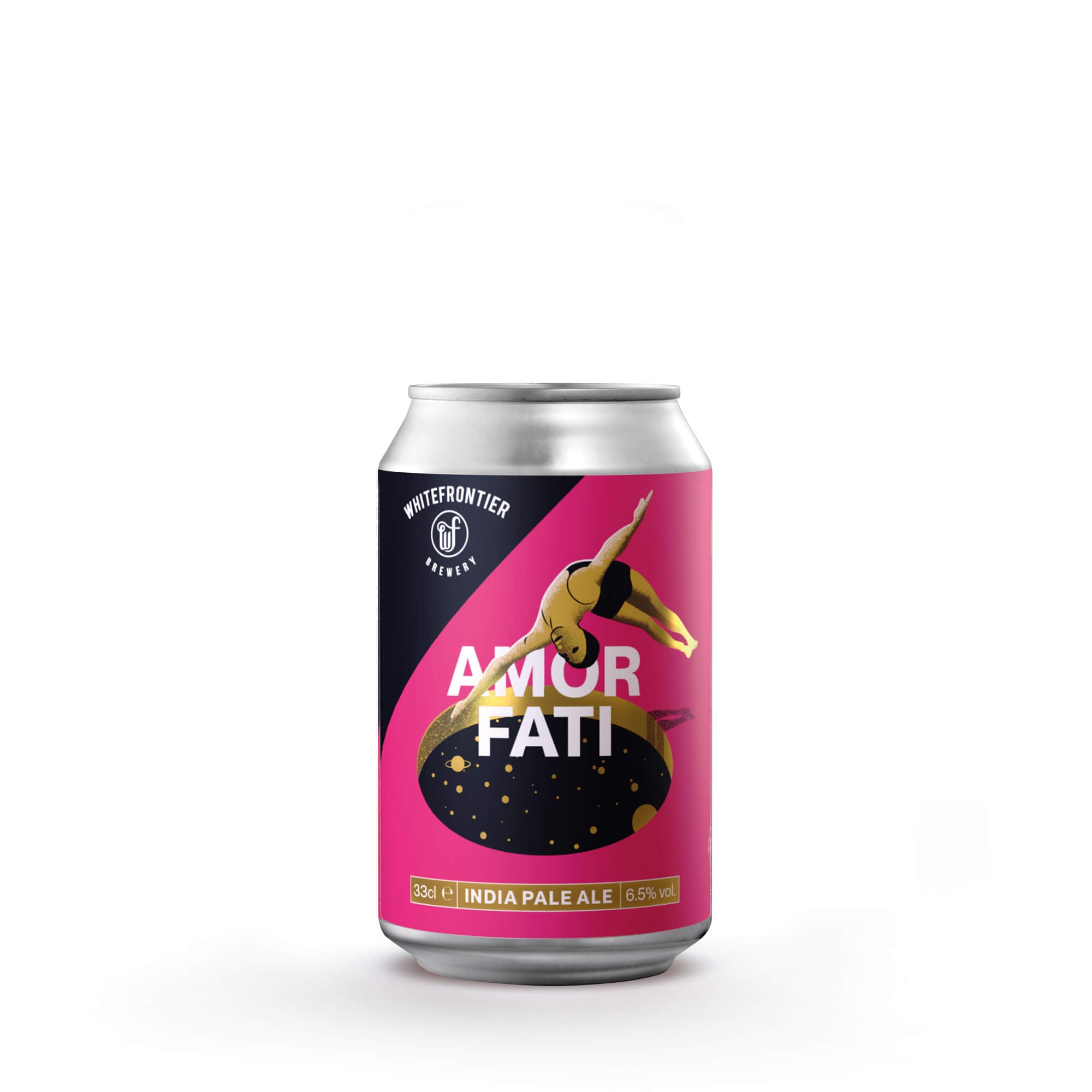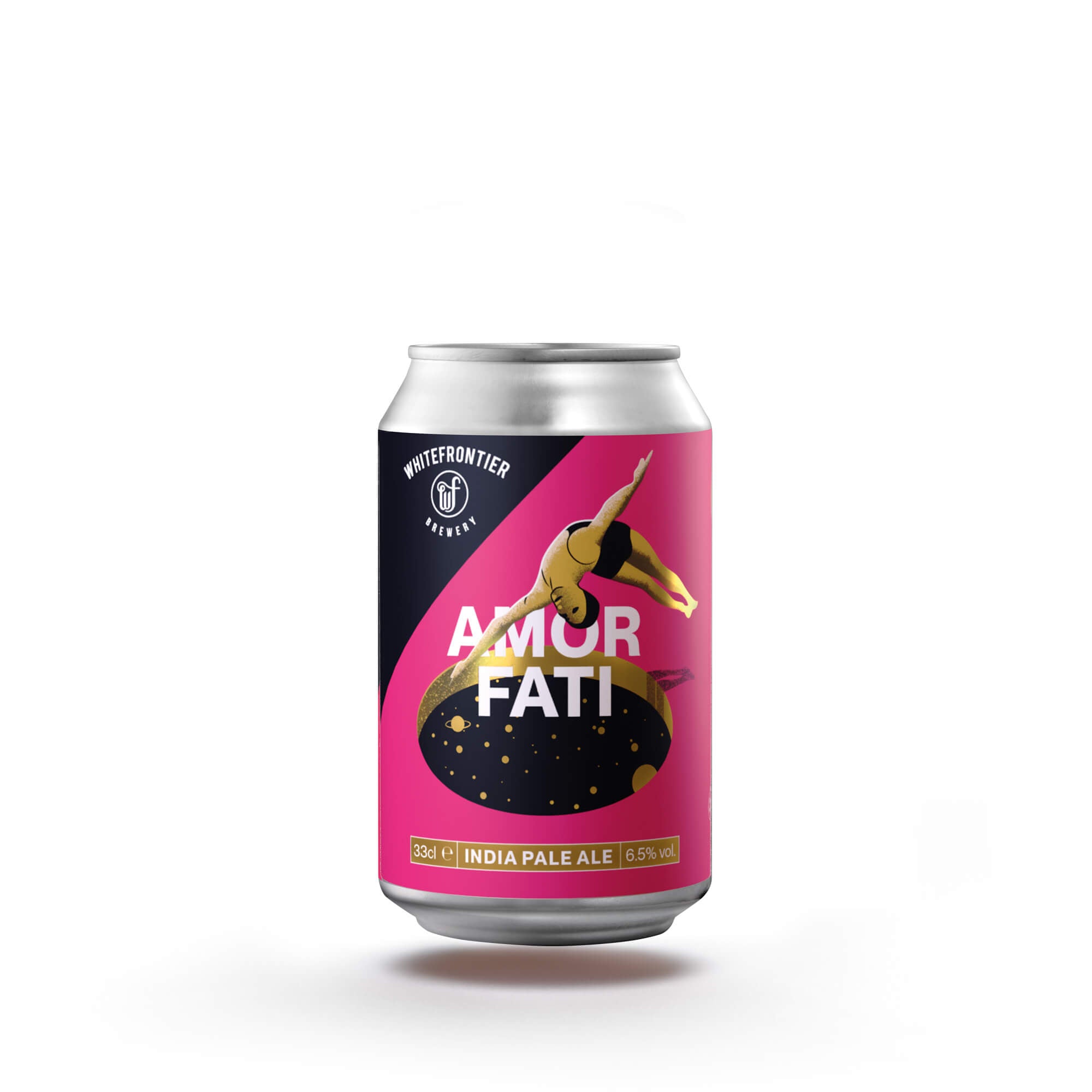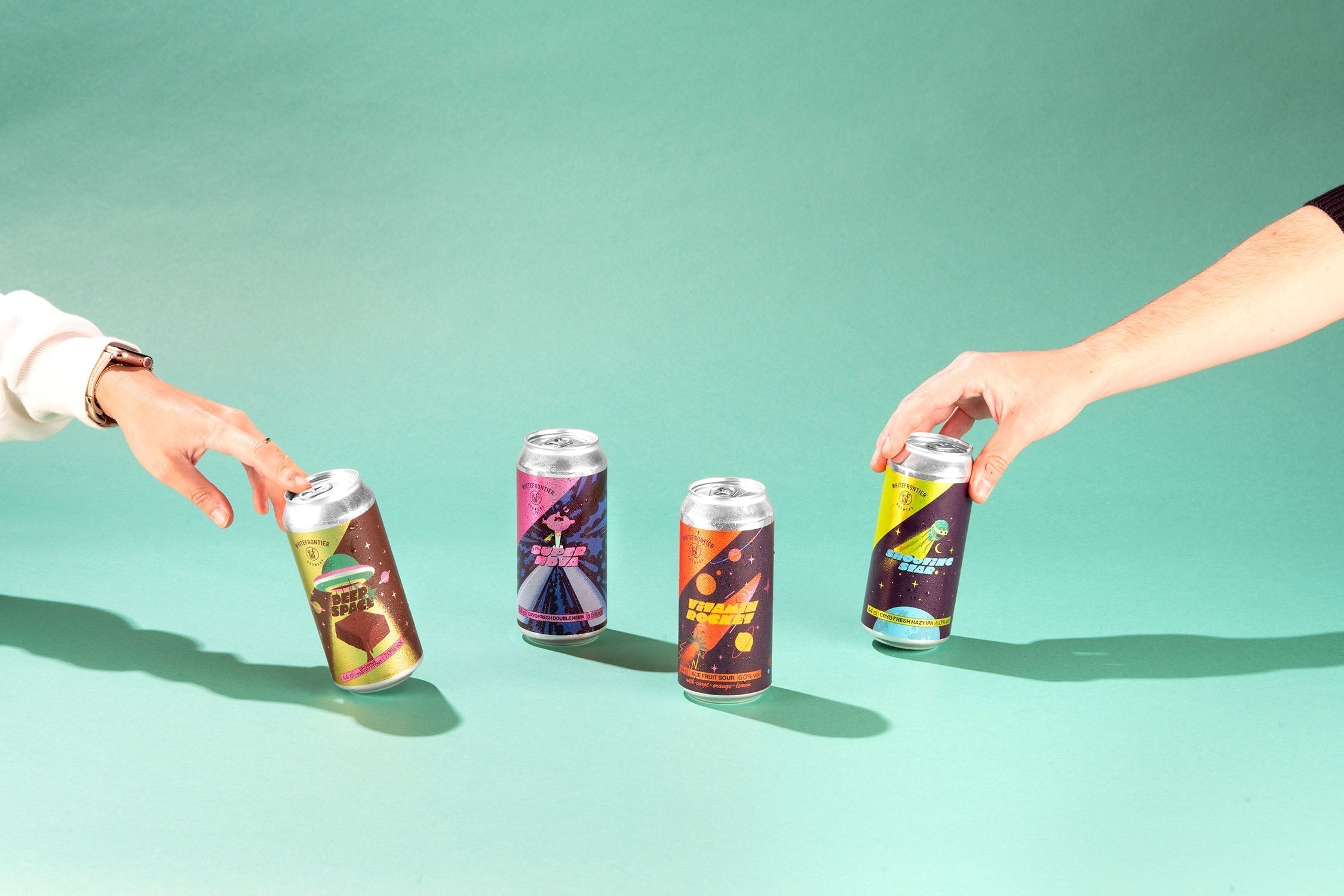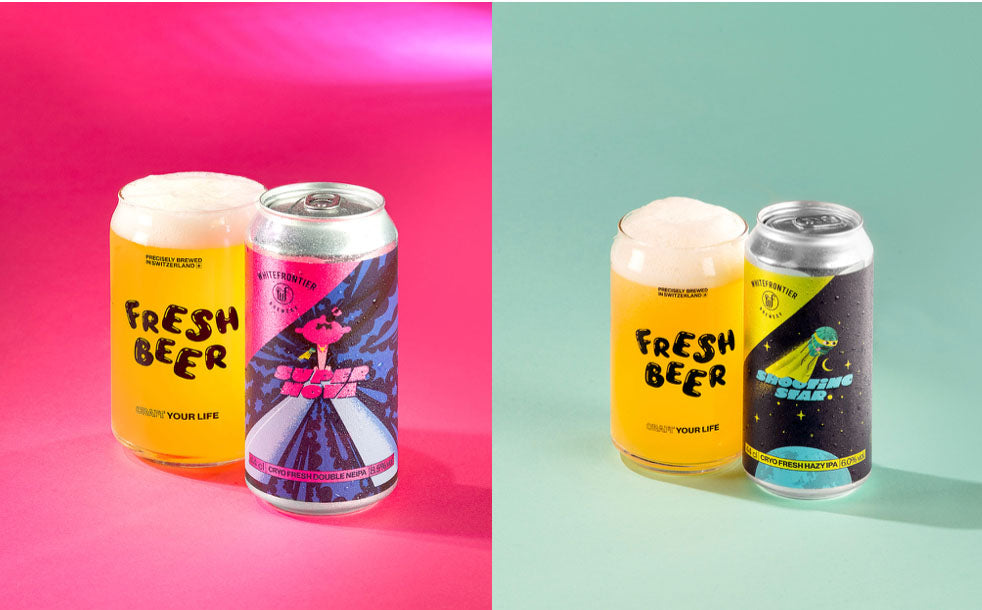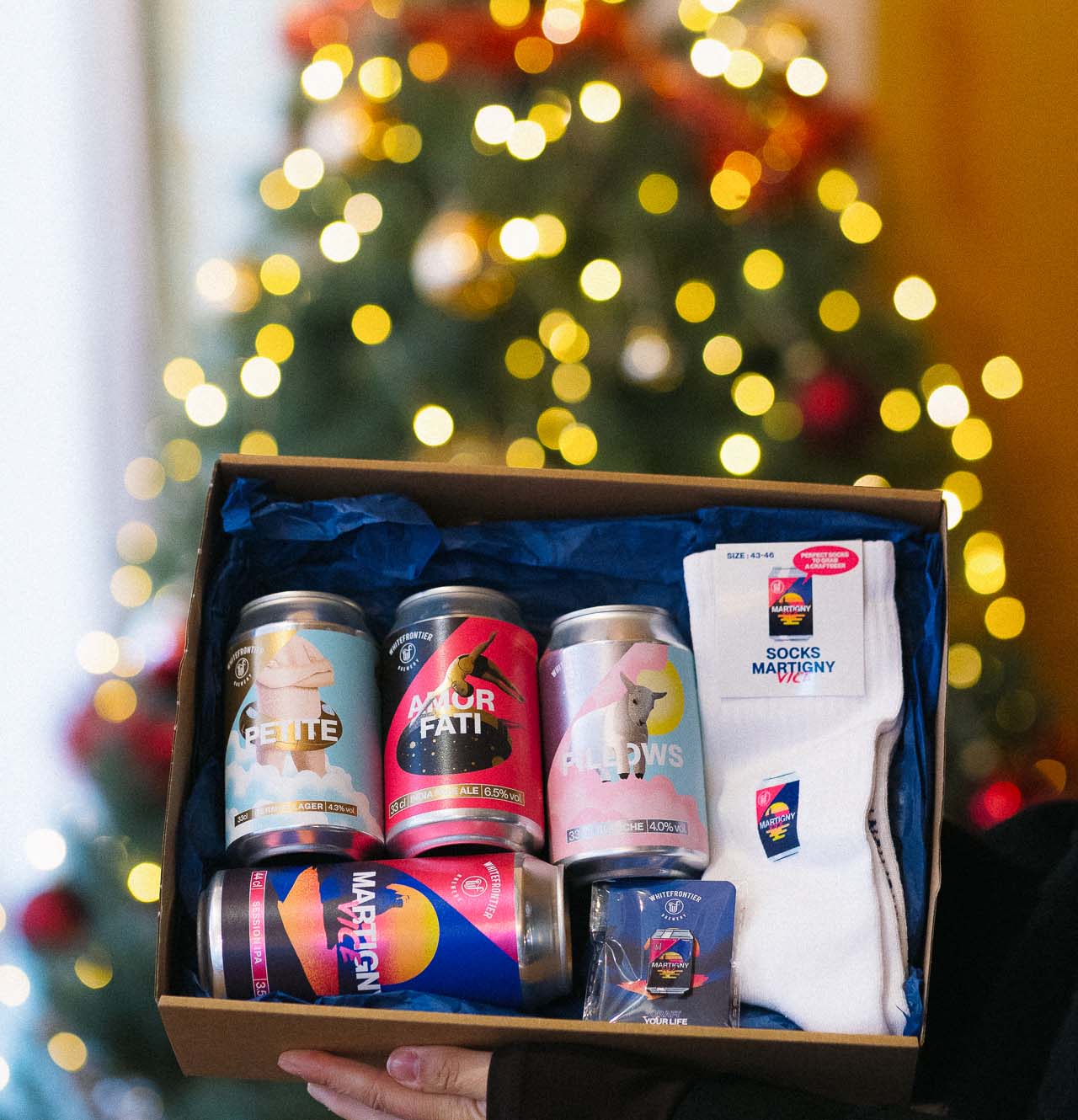Today, we're going to talk about beer conservation. Yes, beer is more complicated than it seems. There are rules to follow to get as close as possible to the emotion the brewer wanted to express.
Don't worry, it's not that complicated. We'll do our best to answer any questions you may have.
If you don't have time to read this article, you can also listen to our podcast on the subject (also available on Spotify under Culture Bière). (In french)
- Should you store your beer upright or lying down?
Well, it depends!
For bottles with a cap: upright.
In fact, if you store it lying down, the beer will be in contact with the cap, and that's not good. There will be a risk of oxidation, and the nutrients or yeast deposits will spread over the entire surface of the bottle, making it less pleasant to drink.
For bottles with corks: lying down.
The cork will therefore be in contact with the beer, improving its seal.For cans: more likely to stand upright, but less serious if lying down.
The can has many advantages, as you can see from our article here. One of them is that beer has very little risk of oxidation. Still, it's better to keep it upright to prevent yeast deposits.
- How to store beer?
Beer's worst enemy is light, heat and sunlight (yet another reason to switch to light-tight cans). Because beer is alive. The brewer, if he's good and serious, knows how to stabilize his beer before putting it in kegs, cans and bottles. But there's always yeast, in varying quantities. This yeast, and therefore these little bacteria, are dormant, but they can wake up and reproduce if the beer is exposed to a source of heat.
Always store in a cool, dark place.
- At what temperature should beer be stored?
To celebrate the launch of our Martigny Vice beer, the WhiteFrontier brewery has decided to offer a small fridge full of beers to one person who will be drawn at random. To enter the draw, you can go here.
- How long can you keep your beer?
The hoppier the beer, the shorter the shelf life. Because hops are plants and don't keep well. So ipa and pales ales are bought and drunk as quickly as possible. In general, for this type of product, we recommend drinking it no more than 6 months after the brewing date. Always opt for beers from your own country or continent, as they'll be much fresher.
If your beer has a high alcohol content, you can keep it for longer. Some beers, like barrel-aged barrels or beers that have been re-fermented in the bottle, can improve with age.
For other beers, try to drink within the year. But don't forget to keep it chilled, to preserve its quality.
- At what temperature should you drink your beer?
But if you serve yourself a beer with a lot of aroma, like an IPA or a stout, too cold, you won't be able to smell all the flavors and aromatic notes. And that's a real shame. So it's best to serve them between 8 and 11 degrees.
Then, with very alcoholic beers like barley wines, you can even serve them at around 13 degrees to really feel the full complexity of the product.
- Can beer be dangerous to your health if it's been stored incorrectly or if it's past its use-by date?
You have very little chance of poisoning yourself with beer. Unless, of course, you drink too much. But that's got nothing to do with the best-before date. No, the dates are there to guarantee the quality of the product. If the date is exceeded, the brewer no longer guarantees the quality, and therefore the taste, texture, foam, etc., of the product.


